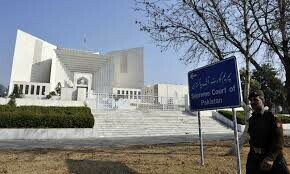
THE Federally Administered Tribal Areas represent the gateway to the plains of the subcontinent through seven passes: Bajaur, Dir, Khyber, Mohmand, Peiwar Kotal in Kurram Agency, the Bolan Pass and Gomal in South Waziristan — the latter three frequently used by invaders from the north, for whom this region represented geostrategic significance. The threat from the south came from Sikh invaders — though only for a brief period — followed by the British in 1849. Historian Arnold J. Toynbee rightly noted that this region was the ‘crossroads of civilizations’.
Invaders had little time to engage the tribesmen in futile war; their main aim was always to conquer the subcontinent or retreat swiftly into the mountains before the onset of summer. Besides rearing livestock, toll tax on trade and the transportation of goods between the subcontinent and Central Asia remained their main source of income. Even the British thought it prudent to devise a peculiar mechanism of administration through the appointment of political agents and tribal elders. Masters of this region long before the advent of colonial rule in the subcontinent — notwithstanding their culture and preference for self-governing — it is a myth, then, that the tribesmen of the northwest are essentially a creation of the British.
After gaining independence in 1947, the state of Pakistan continued with more or less the same colonial legacy. In modern times, successive governments continued this policy of appeasement that, coupled with circumstance, provided tribesmen with ample opportunities to exploit their advantageous position for extracting maximum benefits from the rulers.
The Soviet invasion of Afghanistan in 1979 was yet another turning point in the tribal areas’ history. The government undertook development work, but under a package of patronage. Followed by the Afghan jihad, these years not only resulted in the proliferation of narcotics, weapons and other contraband items but also catapulted a new social class of wealthy Islamic militants into a position of prominence. In the 1990s, opposition to the political administration and the power of traditional maliks was brewing.
Pakhtun society — and the tribal region in particular — is based on the rule of elders known as gerontocracy. Tribal elders exercise power with the consent of co-tribesmen, forming a unique representation through collective leadership. But after the 1980s, state policies and socio-economic factors weakened the political administration. New stakeholders emerged, including educated youth, the Taliban and a new wealthy class of tribal elders, all of whom were effectively challenging the traditional leadership of local maliks. After 9/11, the reversal of policy pitched Islamic militants, with the support of local sympathisers, against the state-sanctioned leadership. When faced with the challenge of militancy, the corrupt political administration and local maliks — many with weak moral authority and perceived as paid agents of the political administration — were in no position to meet this threat. Speaking to one elder in 2001, when I asked what had most disturbed him, he explained that he did not fear death or arrest, but loss of tribal identity and pride. Tribal elders were targeted in the years after 9/11; many hundreds being killed while others fled for safety to the settled areas.
In a tribal society, the power vacuum created due to such social degeneration and administrative failure is usually filled by warlords — a phenomenon witnessed from Swat to Balochistan. Also, due to its culture and terrain, Pakhtun society is not conducive to direct policing. Despite many of the drawbacks of the tribal administrative system, including the violation of human rights, it has remained effective in certain ways for over a century. Moreover, it will prove impossible to change tribal culture simply through legal instruments, especially as tribesmen have closely guarded their traditions for centuries. In the end, long-term peace and progress in Fata can only come with good governance — including a viable administrative and judicial system that is integrated into the mainstream.
The writer was the district commissioner of Kohat from 1998-2000 and political agent in Miramshah from 2000-02, among other postings in the tribal areas.
Published in Dawn, May 23rd, 2017















































Dear visitor, the comments section is undergoing an overhaul and will return soon.